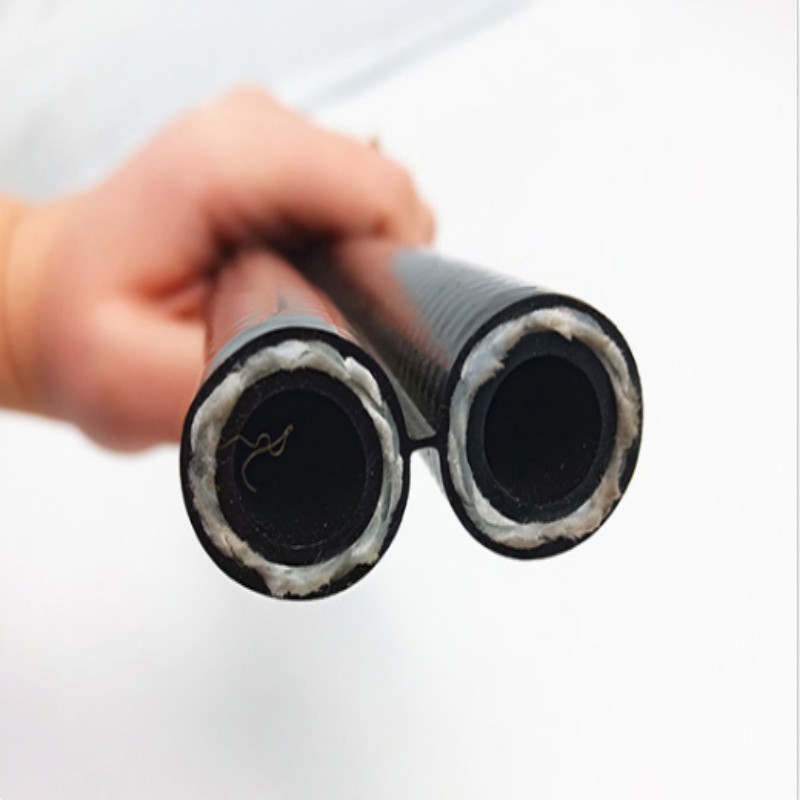Dec . 18, 2024 03:42 Back to list
buy long-working life of hydraulic hoses
Understanding the Longevity of Hydraulic Hoses A Guide for Buyers
Hydraulic hoses are indispensable components in numerous industries, from construction and mining to agriculture and manufacturing. Their primary function is to transmit fluid power and energy, enabling the operation of hydraulic systems that power machinery and equipment. However, the working life of hydraulic hoses can vary significantly based on several factors. Understanding these factors is crucial for making informed purchasing decisions.
Factors Affecting Hose Longevity
1. Material Composition The material used to manufacture hydraulic hoses plays a significant role in their durability. Most hydraulic hoses are made from rubber, thermoplastics, or a combination of both. Synthetic rubbers, reinforced with steel wire or fabric, can withstand high pressures and resist abrasions. When purchasing hydraulic hoses, consider those made from high-performance materials designed for specific applications.
2. Operating Conditions The environment in which hydraulic hoses operate greatly influences their lifespan. High temperatures, extreme pressures, and exposure to chemicals can accelerate wear and tear. For instance, hoses used in high-temperature applications require special materials that can withstand heat without degrading. It's essential to match the hose specifications to the working conditions to enhance longevity.
3. Pressure Ratings Every hydraulic hose has a maximum pressure rating, known as the working pressure. Using hoses beyond their designated ratings can lead to catastrophic failures. Understanding the working pressure of the system and selecting hoses that exceed these requirements can prevent premature failure and enhance performance.
4. Maintenance Practices Regular inspection and maintenance can significantly prolong the life of hydraulic hoses. Checking for signs of wear, such as cracks, abrasions, or bulges, can help identify potential issues before they lead to hose failure. Additionally, implementing proper installation techniques and using the correct fittings can minimize stress on hoses, contributing to their durability.
5. Age and Usage Over time, even the best hydraulic hoses may degrade due to age, regardless of the working conditions. It's advisable to have a replacement schedule based on the manufacturer's recommendations or the hose’s service history. Keep track of usage patterns and replace hoses that show signs of aging or irregular performance.
buy long-working life of hydraulic hoses

Choosing the Right Hydraulic Hoses
When purchasing hydraulic hoses, it's crucial to consider the specific requirements of your application. Here are some tips to assist in your decision-making process
- Consult Experts Engaging with suppliers or industry experts can provide insights into the best options for your needs. They can recommend hoses based on material, size, and application requirements.
- Supplier Reputation Choose reputable suppliers known for their quality products and customer service. A reliable supplier can offer warranties and support, ensuring you get the best value for your investment.
- Compatibility Ensure that the hoses you choose are compatible with your hydraulic system, including fittings and connectors. Mismatched components can lead to leaks and performance issues.
- Read Reviews and Testimonials Researching what other customers have experienced with specific brands or models can provide valuable insights into their performance and longevity.
Conclusion
Understanding the factors that influence the working life of hydraulic hoses is essential for making informed purchasing decisions. By considering material composition, operating conditions, pressure ratings, maintenance practices, and the age of the hoses, you can select products that enhance performance and minimize downtime. Investing in high-quality hydraulic hoses tailored to your specific needs will ultimately lead to increased productivity and reduced operational costs in your operations.
-
Best Four Steel Wire Spiral Hose Hydraulic R12 – Durable High-Pressure Hose Manufacturer
NewsJul.08,2025
-
High-Quality 1/4 Hydraulic Hose – Soft, Flexible & Durable Rubber Hoses for Industrial Use
NewsJul.08,2025
-
1 1 2 Inch Hydraulic Flexible Hose - Durable, Reliable, High-Pressure Solutions
NewsJul.07,2025
-
High-Quality 1 2 Rubber Hose - Durable, Flexible Hydraulic Solutions
NewsJul.07,2025
-
Discover SAE Hydraulic Hose Types - High Quality & Durable Hoses from Leading Factory Supplier
NewsJul.06,2025
-
High Pressure Wire Hydraulic Rubber Hose Supplier Durable & Reliable 1SN Hose Solutions
NewsJul.06,2025
